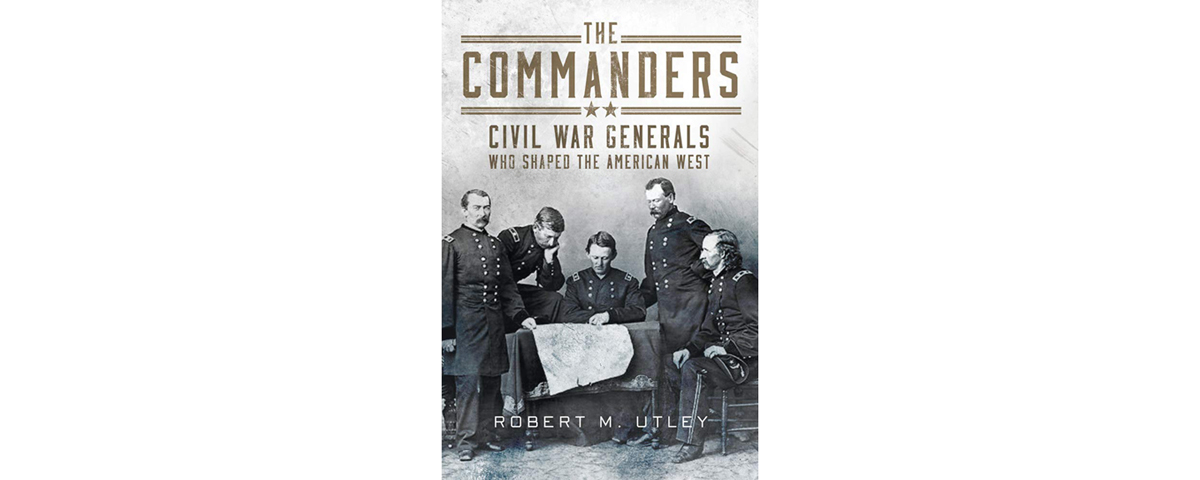The Commanders: Civil War Generals Who Shaped the American West, by Robert M. Utley, University of Oklahoma Press, Norman, 2018, $29.95
Robert Utley, among the most highly regarded historians of the American frontier military, analyzes the careers of the brigadier generals of the post–Civil War American West, those who commanded the military’s regional departments (Columbia, California, Arizona, Dakota, Platte, Missouri, Texas along with the Northwest, the latter organized from 1862 to 1865 during the Sioux Uprising in Minnesota).
Of the group, George Crook and Nelson Miles remain well known today, while Oliver O. Howard, Alfred Terry and John Pope aren’t quite as famous, and Christopher Augur and Edward O.C. Ord are pretty much forgotten. Utley offers a brief biography of each, follows his Civil War career and then moves to the Western commands—where the author pulls no punches, rating them as follows:
Augur: “The least visible [but] the steadiest, most competent, most reliable.”
Crook: “Glossed over or made excuses for what were plainly shortcomings, blamed others for his own failures.”
Howard: “Slightly above mediocre.”
Miles: “Vain, arrogant, ambitious, egotistical, dogmatic, obstinate, duplicitous, abrasive, petulant, quarrelsome, scheming.”
Ord: “A mediocrity.”
Pope: “Humanitarian general.”
Terry: “Mediocre though extremely well-liked.”
In the last chapter Utley evaluates the generals as department commanders, keeping in mind that “fighting Indians was not their only mission.” He also judges them “on the other elements of command—smooth relations with the division commander, administrative ability, and a harmonious staff.” Augur ranks No. 1, followed by Crook, Pope, Terry, Howard, Miles and Ord. Miles, Utley contends, “influenced the settlement of the West far less than his grand hyperbole would suggest.” A book like this will certainly stir up debates, but it’s a great read and a wonderful addition to the shelves of Western historians or even casual readers.
—Johnny D. Boggs





